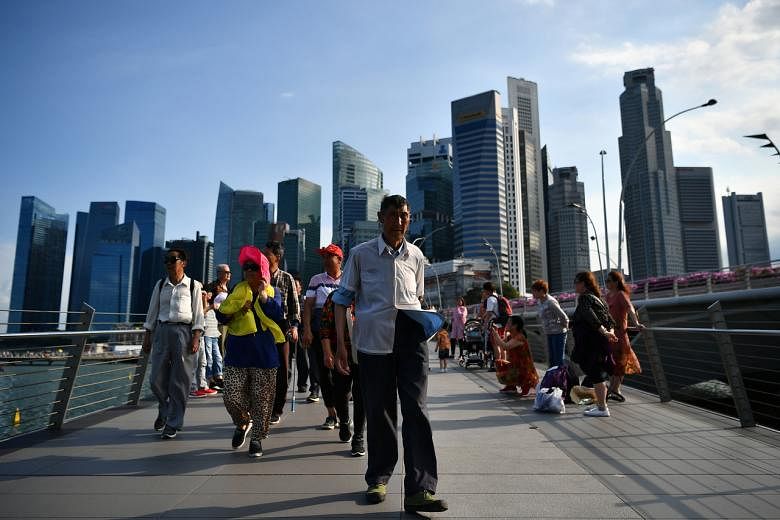SINGAPORE - A local translation engine powered by artificial intelligence (AI) has been developed by the authorities in a move to improve translations of Singapore's four official languages.
The engine - SG Translate - is said to be better suited for Singapore's context when compared with other translation services in the market.
That is because the engine is trained with data taken from local government communication materials, so it is better able to translate specific local terms such as Medisave or Pioneer Generation.
AI, which is the technology of using machines to simulate human intelligence, works best when its models are trained with large amounts of high-quality data.
Developed jointly by the Ministry of Communications and Information (MCI) with A*Star's Institute for Infocomm Research, SG Translate was rolled out to government agencies last July.
Senior Minister of State for Communications and Information Sim Ann on Tuesday (March 3) said MCI is opening up the project to select groups of people starting next year, so that the community can help improve the engine's accuracy.
The groups that will be invited to participate in the "Sg Translate Together" project via a Web portal include the media, individuals and companies involved in translation work, as well as institutes of higher learning offering translation as a subject.
These individuals would use SG Translate for first-cut translations of various texts, before submitting their own, more refined translations to the portal.
The edited versions would then be vetted before they are consolidated and used to further train the AI model.
Said Ms Sim: "The more quality inputs we receive, the more data for training the engine, and the stronger the technology's underlying AI will become.
"We will open up the web portal progressively to more users. This will benefit more practitioners while also growing the engine's capability."
SG Translate has so far been used by public officers in situations such as the ongoing coronavirus outbreak.
Officers used the engine to generate first-cut translations of relevant materials before refining the text further, shortening the lead time required so that Singaporeans can receive more timely updates on the outbreak.
The development of SG Translate comes after several major translation gaffes found in official documents and materials or at public events made headlines over the years.
At the 2017 launch of the Speak Mandarin Campaign, organisers printed the wrong Chinese word for "read" on a poster display, using a similar-looking character that meant "to show disrespect" instead.
In the same year, organisers of the National Day Parade printed Tamil translation errors in publicity pamphlets given to Primary 5 students. The text, which was supposed to be the Tamil translation of the show theme #OneNationTogether, had some letters in the wrong places, while others were missing.
Last year, People's Action Party's (PAP) Kaki Bukit branch chairman Shamsul Kamar issued an apology for Tamil translation errors found on door hanger brochures that were distributed to Kaki Bukit residents.
The brochures were meant to inform residents that PAP representatives had visited their homes when they were not at home. The Tamil text had, however, featured scrambled characters and was unintelligible.


